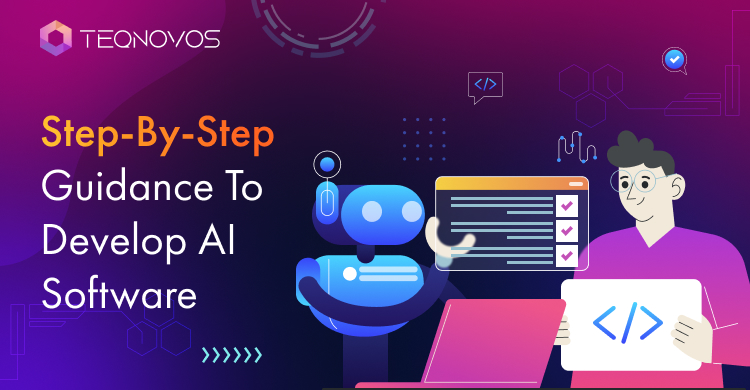How Blockchain Can Be Used in Colleges and Universities? – Know Now!
Blockchain, a revolutionary technology of the modern world, has set foot in the education industry with an aim to boost the quality of higher education. Let’s get familiar with the different ways in which colleges and universities can make the most of blockchain technology.
Blockchain technology has been the center of attention for many tech enthusiasts ever since its inception in 2008. Blockchain was mostly in the backdrop of Bitcoin until its new real-world applications started to gain popularity.
Today, blockchain is much more than just a technology that powers Bitcoin and other altcoins. Several popular applications of blockchain are gaining widespread adoption, such as dApps (decentralized applications), DeFi (decentralized finance), data storage, and NFTs.
Also, many industries are already looking for ways to benefit from blockchain technology, and the education industry is one among them. The possibility of blockchain changing the landscape of the education industry is what excites colleges and universities.
You may find it interesting that blockchain can indeed benefit colleges and universities in multiple ways. If you want to know more about how blockchain can improve the quality of higher education, you have landed at the right place.
In this article, you will learn how exactly educational institutions can benefit from the implementation of blockchain technology. However, before that, you must have a basic understanding of blockchain and its working. So, let’s start discussing that first.
What is Blockchain? How Does it Work?
Blockchain is a distributed ledger for keeping a record of transactions made over a peer-to-peer network. In other words, any peer-to-peer network that processes transactions and records them in a distributed ledger is a blockchain. Also, one more significant characteristic of blockchain is that it uses cryptographic algorithms for data encryption.
Over the years, the utility of blockchain has evolved from a distributed ledger for recording cryptocurrency transactions to a decentralized database that can store almost any sort of digital information. Also, it has emerged as one of the safest ways to store and retrieve data.
Any blockchain network consists of numerous nodes that participate in the transaction recording process. Whenever a transaction happens on the blockchain network, its the responsibility of the nodes to verify the authenticity of the transaction and record its details in the digital ledger.
In general, each node has a copy of the digital ledger having information about all the transactions that have occurred on the blockchain network. As each node have a copy of the ledger, it becomes pointless for malicious actors to alter the data in a digital ledger copy one node.
A blockchain network is designed in such a way that the nodes synchronize their digital ledger copies with each other. This helps to detect any unauthorized changes made to them.
Additionally, blockchain represents a cluster of blocks, and each block can store a certain number of transactions. For instance, the size of one single block in Bitcoin is 1 MB, which is enough to store details of approximately 2000 transactions. Whenever the storage capacity of a block gets exhausted, the network creates a new block and connects them together with the help of cryptographic hash functions.
Why Should Educational Institutions Use Blockchain?
With blockchain’s ability to store data securely and maintain complete transparency among users, it can help educational institutions in different ways. Whether it’s the management of students and faculty records or issuing certificates, blockchain can help streamline various activities.
Also, it becomes possible for colleges and universities to develop blockchain-based learning systems that are much more efficient than traditional ones. From incentivizing learning to enabling automation of the learning process, blockchain technology can completely transform the education system.
Tracking the learning experiences of students, providing quick access to student credentials, and bringing down administrative expenses by automating tasks are some of the biggest advantages of blockchain enjoyed by educational institutions.
How Colleges/Universities Can Use Blockchain?
Colleges and universities can use blockchain solutions for a variety of purposes. Here are some of the use cases of blockchain in colleges and universities:
1. Student Records
For any college or university, managing the records of students is a cumbersome task, especially when the records are retained on paper. Blockchain helps to make the record-keeping more efficient by making the whole process digital. Also, the data in a blockchain is tamper-proof.
While it is possible to digitally record student details using other methods, the use of blockchain proves to be much more advantageous. Unlike conventional digital record keeping, blockchain makes use of decentralized storage. Instead of storing data on a single server, blockchain stores data across multiple devices.
Students can access their credentials from anywhere at their will without having to get permission from any organization.
Colleges and universities can use a public blockchain to store and manage student records. One interesting benefit of managing records on a public blockchain is that students can share their credentials with educational institutions with ease. Students can share access to their records with institutions to make the verification process quick and straightforward.
2. File Storage
As mentioned earlier, blockchain acts as a highly secure storage. Apart from storing student records and credentials, blockchain allows the storage of files.
Colleges and universities can make use of a blockchain network to store all their administrative data, such as department records and expenditure details. The biggest advantage of storing files on the blockchain is that the risk of losing files is quite low.
As blockchain is a decentralized system, there is no centralized server that stores all the files. Thus, the occurrence of a system failure and complete loss of data is not possible.
Also, as an educational institution doesn’t want its confidential data to become public, it can opt for a private blockchain. Unlike public blockchains, a private blockchain is accessible only to a limited number of members.
3. Automate Learning Paths
Blockchain allows us to use smart contracts. A smart contract is a program deployed on a blockchain such that it gets executed automatically when certain conditions are met. By using smart contracts, colleges and universities can develop smart learning paths.
Blockchain developers can create smart contracts for learning programs. When a student accomplishes a milestone or completes a phase of the learning path, they automatically get access to the next level or course available in the learning path.
Also, it is possible to put smart contracts in place that issues a degree or certificate of completion after students accomplish all the milestones within a learning path.
4. E-Transcripts
The production of transcripts is a time-consuming process for students as well as colleges and universities.
If we consider the standard transcript generation process, a student first needs to approach their college or university and apply for a transcript. The institution after receiving the request need to verify the student’s credentials manually and search for relevant documents in a huge pile of paper. Also, many institutions rely on physical mail to send transcripts to students.
As evident, the whole process is slow and inefficient. Students may have to wait for several days to get their transcripts delivered to them.
By leveraging blockchain technology, colleges and universities can store all the credentials of students required for producing transcripts in one single place. As soon as the college or university gets a request from a student, they can quickly access all the required documents stored on a blockchain and issue an e-transcript.
Blockchain can make the transcript generation process super fast and effective. Moreover, as the data stored over a blockchain network is tamper-proof, it becomes impossible to produce fake documents and transcripts.
5. Quick Fee Payments
Fee payment is yet another process that is slow and involves a lot of hassle. Generally, colleges and universities partner with banks to facilitate tuition fee deposits, and banks charge a fee for providing their services. Also, the involvement of other third parties, such as government agencies and NGOs for scholarships makes fee payments more complex.
For students, fee payments become an issue when doing an international money transfer. In general, cross-border payments take several days to complete. Consequently, students have to wait for days to get fee receipts from the college or university.
The primary objective of blockchain is to streamline payments while eliminating the need for intermediaries. With blockchain, students can send payments directly to colleges, and the best part; blockchain can process cross-border payments in minutes.
Evidently, blockchain solutions not only enable quick and hassle-free transactions but also saves money for educational institutions by eliminating the need for banks.
6. Incentivized Learning
Another popular use case of blockchain in colleges and universities is the development of incentive-based learning programs. By making use of smart contracts, we can create learning systems that reward students for completing a learning module, course, etc.
The reward can range from a small amount of cryptocurrency to monetary assistance for repaying student loans.
Incentive-based learning programs can help students stay motivated and enjoy the time they spend learning new concepts. The benefit of creating such programs with blockchain is that they can track the student progress accurately while ensuring complete transparency. No one can alter the performance records of students stored in the blockchain, which ensures that every student gets rewarded fairly.
7. Intellectual Property Protection
Blockchain can help students and teachers to protect their intellectual property, such as research papers. By uploading research work on the blockchain, it becomes quite easy to trace the ownership of that work. Moreover, the owner of a work can store the copyright information such that it can’t be altered.
One more added benefit of blockchain is that it allows owners to share their intellectual properties and track every single person who accesses them. This will help owners to get complete control over their work and its usage by different entities.
Benefits of Using Blockchain in Education
As discussed in the previous section, there are many ways in which colleges and universities can use blockchain to their advantage. As a result, many educational institutions offering higher education have already started incorporating blockchain technology into their systems.
The following are some of the key benefits that colleges and universities get by using blockchain solutions:
1. Enhanced Student Satisfaction
With automated learning platforms and incentivized learning programs, students can enjoy an improved learning experience. They can learn at their own pace, improve their skills, and get rewards for performing well in academics.
With the help of blockchain solutions, students can get recommendations for courses according to their past performance, access their credentials with ease, and pay tuition fees instantly. This will eventually help to improve student satisfaction.
2. Reduced Costs
By eliminating the need for intermediaries like banks, colleges and universities can cut down their expenses. Also, due to the decreased costs, institutions can reduce the tuition fee for students and make education more affordable. Also, the reduction in costs allows educational institutions to become more profitable.
Administrators can also leverage blockchain technology to automate various tasks and replace inefficient practices for accomplishing work with more effective ones. Automating tasks will reduce the need for human resources. This also will cut down the administrative expenses for educational institutions while ensuring more efficient execution of tasks.
3. Better Administration
Automation of administrative tasks not only brings down expenses but also drastically reduces the chances of human errors. These errors degrade the overall quality of administration. However, by using certain blockchain solutions, it is possible to automate different administrative tasks and reduce the need for human involvement.
Be it record-keeping, transcript generation, or curriculum development, blockchain can help streamline many tasks.
4. Fraud Prevention
The data stored in the blockchain is tamper-proof. This wipes out the chances of manipulating data to forge fake degrees. By shifting the academic records of students to a blockchain network, it becomes super easy to identify the entity that has issued a document. This, in turn, allows universities to check the authenticity of credentials.
In all, blockchain-powered solutions can help to prevent fraud in the education industry. Students and educational institutions can put more trust in each other.
Get the Best Blockchain Development Services with Teqnovos
Teqnovos is a well-established firm that offers a wide array of blockchain development services, including, custom blockchain app development, smart contracts development, dApps development, and private blockchain development.
We are a team of highly skilled and enthusiastic blockchain developers who can create custom blockchain solutions for colleges and universities. We have extensive experience working with various blockchain platforms and development technologies, such as Ethereum, Solana, Stellar, Hyperledger, Corda, Polygon, Solidity, and C++. Node.js, and Go.
By utilizing our knowledge and experience, we can create top-notch blockchain solutions for educational institutions. For instance, we can create solutions for managing student records and digital identities, offering automated learning, generating e-transcripts, and facilitating tuition fee payments.
Teqnovos is a leading blockchain development company that organizations across the globe trust for the following reasons:
- Quick Development and Delivery
Teqnovos makes use of agile methodologies to develop blockchain solutions quickly. A proper development plan is created to ensure the timely delivery of the end product that meets all the expectations of the client.
- Vast Experience
Professionals at Teqnovos have the extensive technical knowledge required for developing robust blockchain solutions for educational institutions.
- Cost-effective Solutions
One of the biggest reasons for organizations to rely on Teqnovos is that we offer our services at affordable prices. We value both the time and money of clients and develop products for them while minimizing the wastage of resources.
- Top-Class Customer Support
Teqnovos employs a dedicated customer support team to address the queries of customers and provide solutions at the earliest possible.
Conclusion
There are several real-world use cases of blockchain technology in the education industry. Colleges and universities today have the option to make use of different blockchain solutions to strengthen their administrative operations.
Additionally, the implementation of blockchain can improve the learning experience of students. They can enroll in reward-based learning programs and opt for automated learning paths. Also, the quick generation and delivery of e-transcripts will make the lives of students much easier.
Any college or university willing to exploit blockchain technology to its advantage should consult a trusted blockchain development company.
















